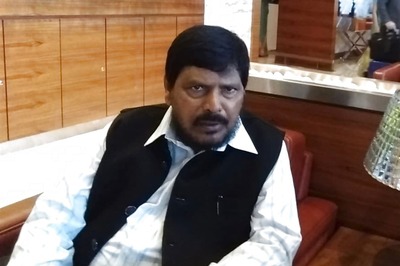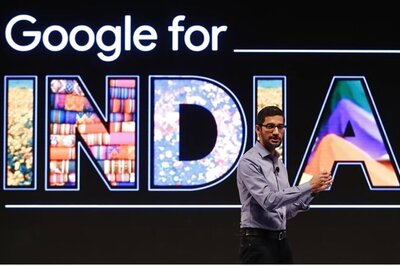
views
New Delhi: A Constitution Bench, led by Chief Justice of India Dipak Misra, will pronounce on Wednesday its verdict on a batch of petitions that are challenging the constitutional validity of Aadhaar – the government’s biometric identification scheme.
The five-judge Bench of CJI Dipak Misra, and justices AK Sikri, AM Khanwilkar, DY Chandrachud and Ashok Bhushan had reserved its judgment in May this year, a culmination of over seven years of various challenges against Aadhaar.
As the top court gears up for the final judgment, we look back at some of the unusual scenes that took place before the court.
The PowerPoint presentation
The Supreme Court allowed Ajay Bhushan Pandey, the CEO of the Unique Identification Authority of India (UIDAI), to present a PowerPoint presentation before it to make an argument regarding the security of the system. For the exercise, two screens were set up in the court room and lawyers were handed over hard copies of the presentation. Pandey claimed that the Aadhaar data of 1.2 billion Indians were protected by a 2048-encryption key that would take a super computer over 13 billion years to crack.
The wall
Attorney General KK Venugopal told the Supreme Court that the Aadhaar data were safe behind walls that are 13 feet high and five feet thick at a complex in Manesar, near Delhi. The top lawyer also offered to show the complex to the court in a four-minute video. He added Aadhaar was “not a fly-by-night effort to get some brownie points”, but a serious effort to end corruption.
Bodily autonomy
The debate spilled over to whether Indians have absolute right over their bodies and if they do, whether the Aadhaar scheme violates such a right. Attorney General Mukul Rohatgi argued that Indian citizens could claim an “absolute right” over their body and refuse to surrender their fingerprints or iris scans for enrolment. “The concept of absolute right over one’s body was a myth and there were various laws which put restrictions on such a right,” he said, while citing suicide and drug abuse as instances wherein such a right can be taken away by law.
Responding to the argument, Justice AK Sikri pointed out that the liberty of individuals also needed to be maintained. He said, “You cannot raise the spectre of crime to say that we will treat everyone as an accused. The liberty of individuals is to be maintained. We live in a society and we have to live with dignity.”
Data protection
The Supreme Court had declined the Centre’s offer to place on record the report prepared by Justice B N Srikrishna committee on "data protection" for its perusal, with the bench having reserved its verdict on pleas challenging the validity of Aadhaar. "I do not think that it is required," CJI Dipak Misra said after consulting Justices Khanwilkar and Chandrachud. The committee has suggested measures to be taken when it comes to protecting the personal information of citizens, the role and duties of data processors and the rights of individuals.




















Comments
0 comment